MICHAEL A. VENTRELLA: Today I’m very pleased to be interviewing Ursula Vernon a/k/a T. Kingfisher (which is how I know her work). Ursula does not limit her creativity. She is a Hugo-award-winning author not just for her novels but also for her graphic novels, and has also won a Nebula Award as well! In fact, she’s up for a Hugo again this year for her novella “Thornhedge.”
Her web page is here.
Let’s start by explaining to my readers why you have two names for your books (and how you chose your alter ego name)!
URSULA VERNON: The reason is simple: brand separation. Which sounds very marketing-speak, but actually means that I write both children’s books and adult horror and these are not streams that I want to cross. Particularly when you write for reluctant readers, there’s a tendency for parents to think “hey, they will read this author, so I will buy ALL their books!” Life is just easier when there’s a separation between them.
I picked the name partly because kingfishers are my favorite bird, and partly because of Ursula K. Le Guin. She sold a story to Playboy in the Seventies, but they asked her to be listed as “U. K. Le Guin” because they thought their readership would be intimidated by a female byline. She later wrote something to the effect of “ Who would they think it was? Ulysses Kingfisher Le Guin?” So it’s a bit of an homage there too.
VENTRELLA: My wife and I very much enjoy your Kingfisher books, although she was listening to the second Paladin audio book while some workers were in the house doing some remodeling and had to stop when it got to one of the sex scenes! Tell us about the Temple of the White Rat world and why you enjoy writing in it.
VERNON: Oh no! How awkward!
I sort of fell sideways into the Temple of the White Rat—I wrote a fantasy novel called CLOCKWORK BOYS and had the broad outlines of the world sketched in around it. Then when I had another fantasy novel to write, I already had this world lying around, so I figured I’d use it, and then another and another. Each one fleshed out more of the world, and there were elements that showed up in early books that I found myself wanting to know more about, like the Temple of the White Rat itself. (A faith dedicated simply to solving problems and making people’s lives better, so it employs a lot of social workers, lawyers, and organizers. The lawyers in particular keep showing up…)
VENTRELLA: As a lawyer, I appreciate their appearance. Can we expect more in that series?
VERNON: Absolutely! There’s seven books planned in the Saint of Steel series, and I’m only through book four!
VENTRELLA: One of my favorites is A WIZARD’S GUIDE TO DEFENSIVE BAKING which won some nice awards. How did you come up with that concept?
VERNON: OK, there’s the good answer, which is about magic systems and small but versatile powers, and there’s the true answer, which is “I bet I can write a Kitchenaid mixer off on my taxes.” Despite these mercenary beginnings, I’m actually very proud of how it turned out, and it went much farther than I ever expected it to!
VENTRELLA: Admittedly, I have not read all of your books, but the “reluctant hero” seems to play a part in the ones I have read. (My books also tend to feature those kinds of characters!) What is it about those kinds of heroes that makes them appealing to you?
VERNON: I think it’s because that’s the kind I’d be? Being a hero is miserable work, or else everyone would be doing it! So it’s very easy to get in the headspace of wanting to cling to your comfort zone but having the world drag you out of it. Whatever you may think of Joseph Campbell, having “rejecting the call to adventure” as a major milestone of the hero’s journey is spot-on. I don’t want to save the world, who will weed the garden?!
I’ve only written one book, off the top of my head, (not yet published) with a character who genuinely wanted to be a hero, and most of that book is about learning that heroism can be very traumatic!
VENTRELLA: You started off doing graphic novels and then children’s books. Too many beginning writers think writing for a younger audience is easier. Tell us why it isn’t!
VERNON: Oh goodness. It’s definitely not easier! Writing for kids usually requires you to write very tight and fast-paced to keep readers engaged. In an adult novel, you have more time to stop and smell the roses, go off on tangents, and just plain noodle around. You can’t be boring in either, but you get a lot longer to prove yourself in an adult book.
Also it turns out that most editors really frown on arson in kid’s books. But sometimes burning down the the haunted house is the smart thing to do, dammit!
VENTRELLA: As an artist, what’s your opinion of AI art? Should conventions accept it into their art show?
VERNON: I haven’t heard a good case for letting it into art shows, no. Overall, I’m mostly annoyed that the technology in these visual generation algorithm were all fueled by plagiarism. I was enjoying fiddling with them until we all found out how the sausage was made.
Weirdly—or maybe not that weirdly!—I liked the output a lot better when it was worse? The early incarnations had a dreamy, distorted quality that got the ol’ pareidolia working hard, and was potentially a fun creative springboard. Now that it’s just stuff that looks exactly like other stuff, albeit with extra fingers, it lost a lot of that early hallucinatory charm. From visual magnetic poetry kit to mediocre stock photo, in a couple of software updates.
VENTRELLA: You’ll be a guest at Ravencon this year and I’m looking forward to meeting you. Do you enjoy going to conventions? What other ones do you have coming up so people can meet you?
VERNON: I frequently cling to my mattress going “Nooo, I don’t want to travel!” and then of course I have a great time at the conventions. (I suspect this is normal.) It’s awesome to meet readers and other authors and to see so much creativity and talent on display!
This year, I’ll be at Finncon, if anybody is out in Finland, and at Bubonicon in Albuquerque!
VENTRELLA: What can we expect next from you? What are you working on now?
VERNON: Oh man, too many things at once! I’m working on a weird retelling of Snow White, and the third Sworn Soldier book, and about to start editing a really squishy horror novel that I’m quite pleased with.
VENTRELLA: Any interest from Hollywood that you can talk about?
VERNON: Stuff gets optioned occasionally, but as my agent said, “A book has a one in a thousand chance of being a movie, and if it gets optioned, it has a one in nine hundred and ninety nine chance.”
VENTRELLA: Who do you like to read? Who has influenced your work?
VERNON: I’m one of those people who can’t read the genre I’m writing while I’m working on it, so when I write horror, I read romance, and when I write fantasy, I read non-fiction. Then I try to cram all the amazing genre books into my eyeballs while I’m doing edits!
VENTRELLA: Tell us how to found your agent/editor/publisher and how you first got started.
VERNON: It is safe to say that my career path would be awfully hard to duplicate. I was doing webcomics and putting up art with weird little stories under it. Then a romance writer friend of mine told a funny story about her weird artist friend, while at a professional dinner, and the agent sitting next to her said “oh, graphic novels are really hot right now.” My friend points her to my website and suddenly I had a literary agent without really having a book! (This is not how anything works. Ever.) Anyway, she asked if I could write a children’s book, and having both ignorance and confidence, I said “Sure!”
Fortunately, I was correct. (Seriously, though, luck is the great driving factor in a LOT of careers. Maybe mine more than most, but a lot of authors will freely admit that luck played a huge part.)
VENTRELLA: One thing writers sometimes fail to understand is how important connections matter in getting into the business.
VERNON: Well, see above! But also in things like “I knew this editor from conventions and talking online about fan fiction, gardening, and stuff like that. Then I made a joke on Twitter about the Worst Elevator Pitch Ever and she was in my DMs asking “Does this book really exist? Can I see it?” Luckily it did exist, but it’s not like I had started chatting with her online about gardening five years earlier, thinking “Someday she will be in a position to publish my book!” I just had opinions about weeds.
Connections really have to happen organically, I think. But also I’m bad at knowing when they’re happening. A friend of mine once had to say “That was networking. You networked. Right there. Networking occurred.” I had been excitedly telling some people about Irukandji jellyfish, over drinks at a Worldcon. Apparently some of them had been editors. (The people, not the jellyfish.) And of course I’m left flailing and going “But we just talked about being horribly stung to death!” And yet, in a few years, if you stick in somebody’s mind, even just as “entertaining weirdo who gets excited about marine invertebrates,” that may turn out to put you in the exact right place at the right time. Or not, in which case, hey, at least you had a fun conversation about jellyfish, which is really its own reward.
VENTRELLA: You’ve been fairly prolific, with quite a few stories published every year. How do you find the right markets for your stories?
VERNON: That’s a great question! I do not have a great answer. My agent helped a lot with placement of course, but I had a lot of books that editors would like but have no idea how to market, like WIZARD’S GUIDE TO DEFENSIVE BAKING. I started self-publishing mostly to get those weird little stories out there, and then publishers started actually asking for those stories and I was like “What? Really? Okay!”
I’ve been very lucky with Tor, who has realized that I write about three different genres and has been willing to publish all of them instead of trying to get me to narrow it down to one.
VENTRELLA: Let’s separate writing from storytelling for a minute. Writing skills can be taught, but do you think it’s possible to teach how to tell a good story, or is that just some kind of talent that not everyone has?
VERNON: Honestly, I have no idea. I think maybe it’s like comedic timing, though—there may be a few people on earth who absolutely cannot learn, but a lot of people who think they can’t actually could if they took an improv class or something. Maybe it’s not that storytelling can’t be taught so much as that it’s harder to wrangle and you have to go at it sideways.
VENTRELLA: What’s the best advice you would give to a starting writer that they probably haven’t already heard?
VERNON: If you get a book contract, do NOT have your family lawyer look it over, unless they happen to have retired from entertainment law. Words are used differently in book contracts than they are in, say, real estate, and it will only lead to sorrow. (Your agent will handle this bit for you if you’re agented. Thankfully.)
And once you’re a little further along, when you have perhaps published a couple of books, you will start getting email. A LOT of email. If this starts eating all your time, there are a number of people in the world who have executive function for hire and will triage your email for a small monthly fee. It is worth it.
VENTRELLA: What’s the worst piece of advice you’ve heard people give?
VERNON: Only work on one thing at a time! That shiny new idea is a sign that something is wrong with your current manuscript and you must dutifully knuckle down and fix it! Etc., etc.
Me, I have ADHD like whoa, I work on three to five projects simultaneously, and if I get an idea I’m excited about, I chase it every time. My enthusiasm is a much rarer commodity than my sense of duty. I’ll hammer out ten or fifteen thousand words, then go back to the other project. Frequently those shiny ideas get sent to my editor and she gets excited and it turns into a book too.
VENTRELLA: With a time machine and a universal translator, who would you invite to your dinner party?
VERNON: Oh gosh…Mark Twain, Terry Pratchett…Beverley Nichols so we could talk gardening… Maybe someone more out of left field, like Saint Hildegard of Bingen. (Though probably not at the same dinner party as Nichols.)
Filed under: writing | Tagged: T. Kingfisher, Ursula Vernon, writing advice |


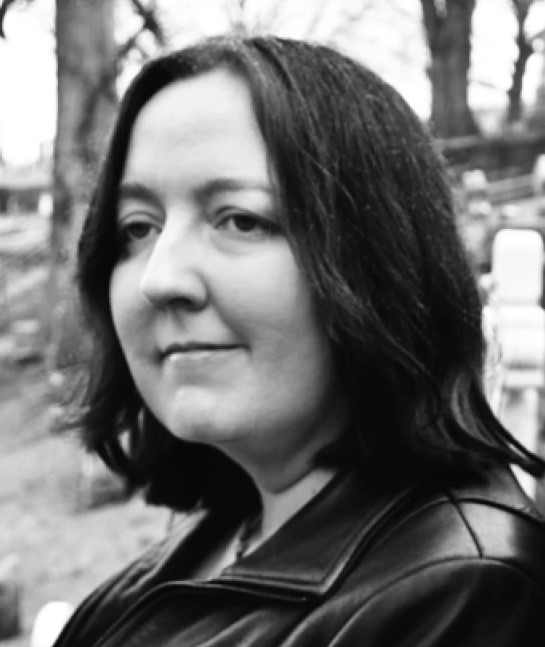

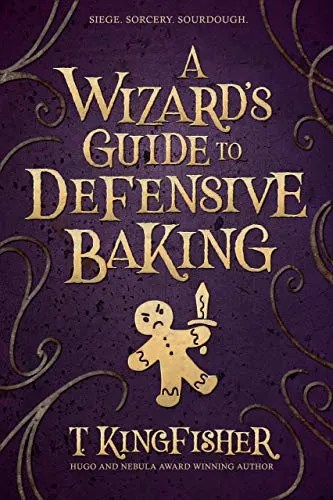
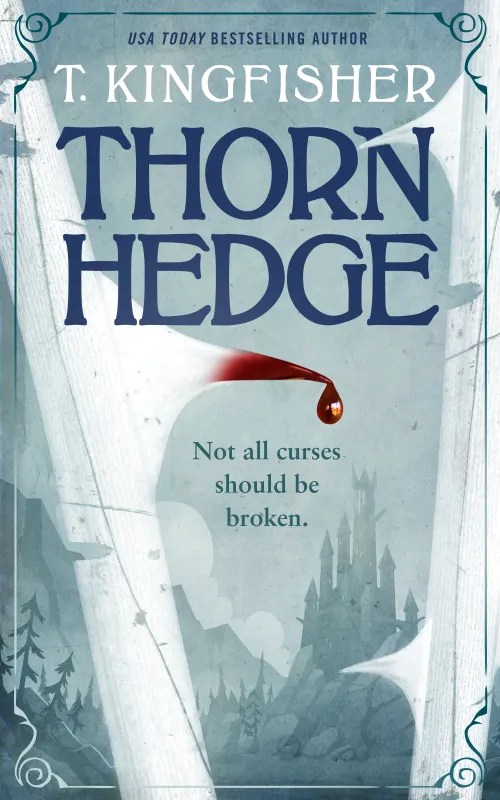
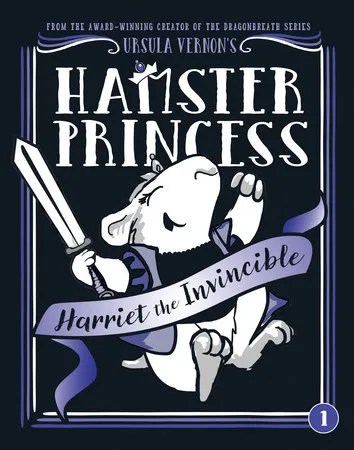
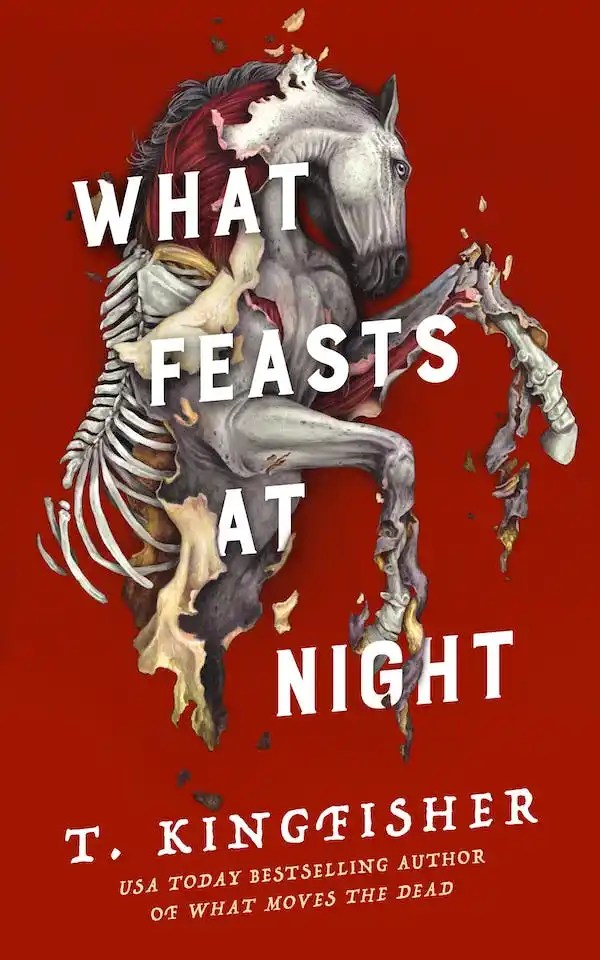
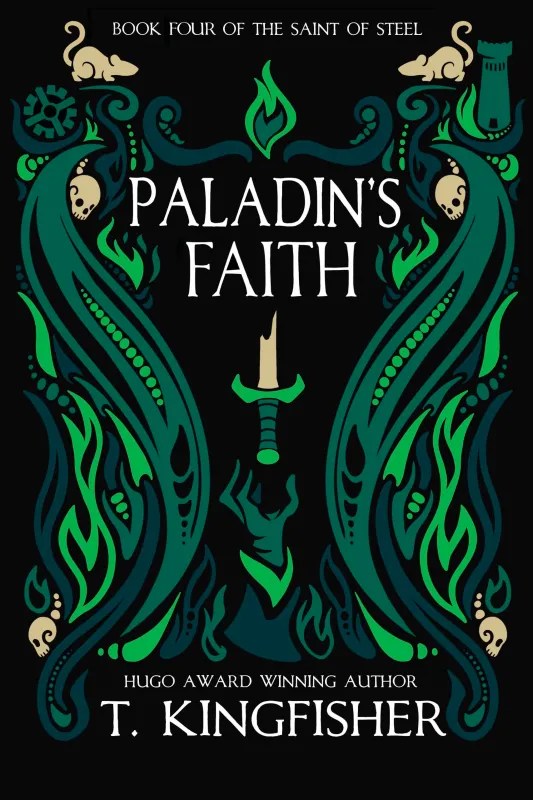
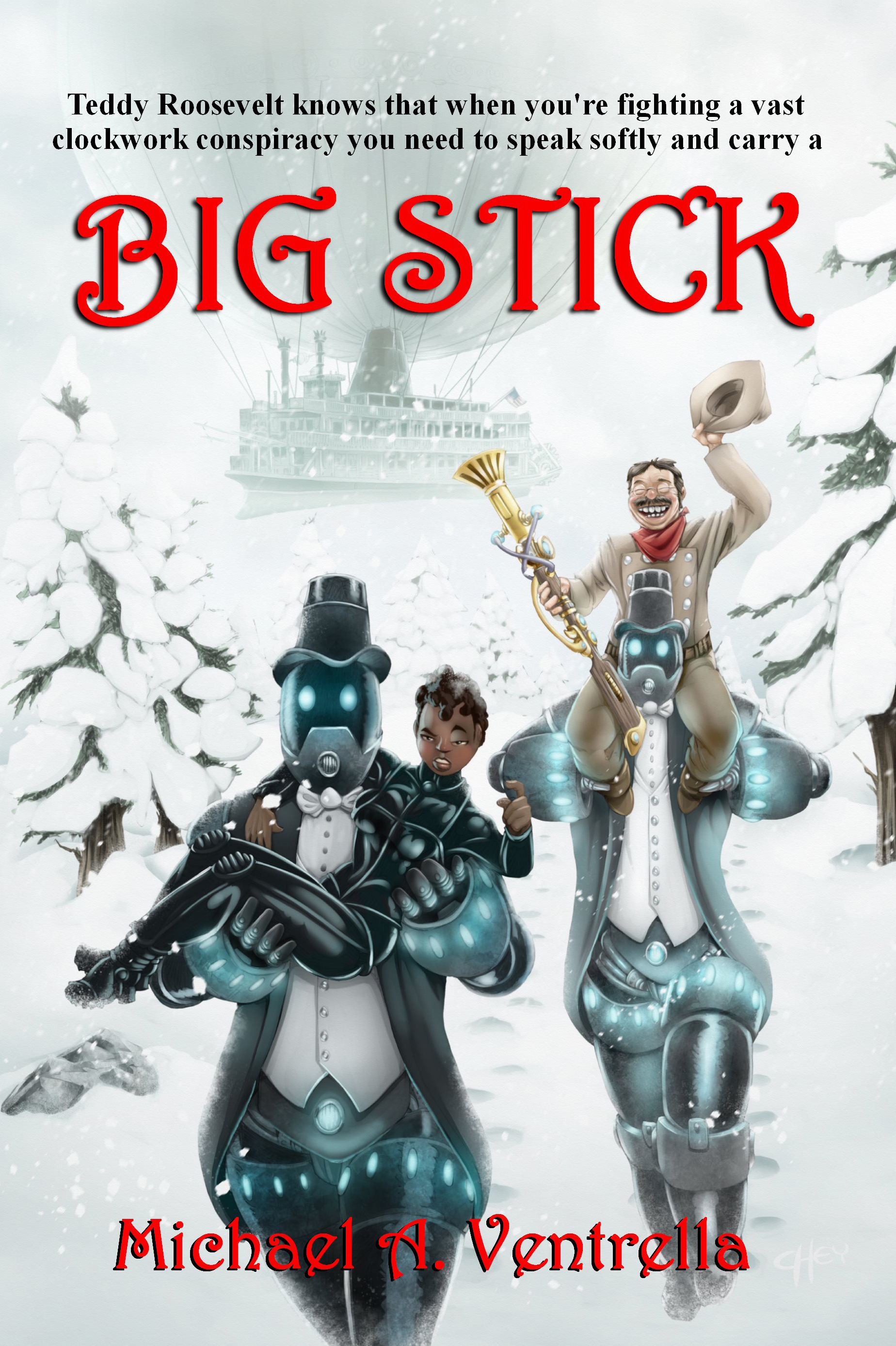
Leave a comment